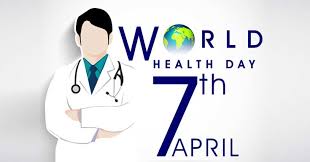As Nigerians join the rest of the world to commemorate the World Health Day, psychiatrists have attributed recent upsurge in suicide cases to depression, with additional factors of hopelessness; post-traumatic stress disorder, substance use disorder, stigmatisation and chronic illnesses.
A Consultant Psychiatrist and Coordinator, Suicide Research and Prevention Initiative (SURPIN), Lagos University Teaching Hospital (LUTH), Dr Raphael Ogbolu, identified depression as the major culprit in suicidal actions.
Little wonder the theme of the 2017 World Health Day was tagged, “Depression, let’s talk”, as the WHO has named India as the country with the highest suicide rate among 10 South-East Asian countries and depression is one of the leading causes for this.
Globally, it is the biggest cause of ill health and disability, says WHO. In South-East Asia region, a massive 86 million people are affected by depression.
The WHO Press Statement further revealed that in the last decade, cases of depression have surged by nearly 20 percent, with symptoms like persistent sadness and a loss of interest in activities that people normally enjoy, accompanied by an inability to carry out daily a ctivities for two weeks or more.
ctivities for two weeks or more.
Though depression affects all people across all demographic groups, it is more common among teens, adolescents, youth, women after childbirth (postpartum depression) and those above 60.
To forestall further increase in suicide cases, Dr Ogbolu highlighted some preventive measures and actions to look out for in people with suicidal tendencies.
Among them are sudden starts behavioural changes, like an outgoing person withdrawing from associating with people; when someone starts having loss of sleep, appetite; when there is a notice in changes of someone’s facial expression and gesticulation, and when one who normally doesn’t take alcohol or takes it moderately suddenly increases his intake of the substance, these kinds of people should be monitored and alarm raised.
The consultant psychiatrist further called for a close monitoring of people going through traumatic situations and those who have positive history of suicide and attempted suicide in their family.










